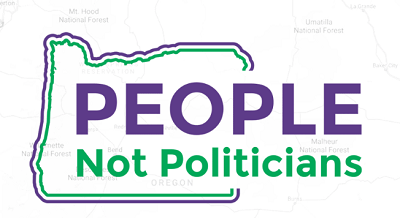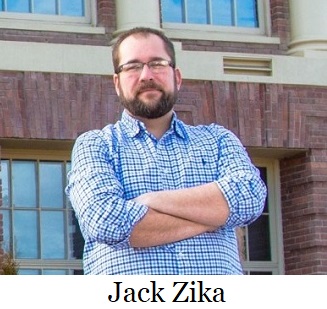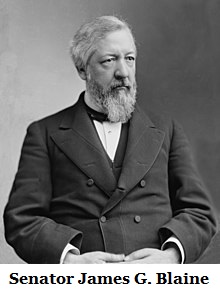
On this day, July 3, 1997, the Rainbow Family, founded in 1971, began their 25th gathering in Ochoco National Forest in Oregon. 20-30,000 were expected to participate.
Also on this day, July 3, 2017, Oregon enacted a rule change allowing people who do not identify with their gender to instead mark "X" on their driver's licenses of state ID cards.
Also on this day,July 3, 1975 interstate 80N (later renamed I-84) was completed with four lanes open from Portland to Idaho border. Dedication ceremonies were held outside Baker City.
The public employee union was enabled by a 2019 bill
In a communcation to its members, the politically-charged, largest state public employee union sent a letter from its political director, Andrea Cooper to urge workers to work a phone bank to urge a Colorado Senator to vote to pass the
HEROES Act. This act, which is a $3 trillion economic stimulus package, narrowly passed the House on May 15 by a vote of 208 - 199. It is stalled in the Senate.
In the letter, Cooper intructs members
SEIU launched an Adopt A State program where members from states like Oregon can reach out to voters in swing states and convince them to demand that their Senator support the HEROES Act. SEIU 503 adopted Colorado and Senator Cory Gardner.
We’ll have a phone bank targeting Colorado voters and Senator Gardner next Thursday, July 16th, from noon to 3 p.m. There will be a brief training session prior to the phone bank and staff will be available if you have any questions or issues.
It's not terribly controversial that SEIU would support this bill and would ask its members to work to get it passed. What is controversial, is that it seems as if it is expected to be done during work hours, presumably while state workers are working on taxpayer time.
This kind of activity may not be illegal. In fact, it was made possible by a law passed during the 2019 session,
HB 2016, which allows public employee unions to have their members perform union work on taxpayer time. Section 4, subsection (1) of
the bill, passed in the House on a straight party-line vote, and over the objection of a single Democrat in the Senate (Betsy Johnson D-Warren), says:
(a) The public employer shall provide a reasonable term of release time for public employees to serve as designated representatives of the exclusive representative or an affiliated labor organization.
Section 2 describes what a "Designated Representative" is:
(1) “Designated representative†means a public employee:
(a) Who is designated by the exclusive representative as a representative for the employees in a bargaining unit;
Section 3 describes what these "Designated Representatives" may do:
(1) A public employer shall grant public employees who are designated representatives reasonable time to engage in the following activities during the public employee’s regularly scheduled work hours without loss of compensation, seniority, leave accrual or any other benefits:
...(h) Perform any other duties agreed upon by a public employer and an exclusive representative in a collective bargaining agreement or any other agreement.
In a time where state budgets are awaiting a multi-billion dollar trim, critics have pointed out that it is is very poor taste to be using taxpayer-funded public employees to do politicking in Colorado.
--Staff Reports| Post Date: 2020-07-08 17:36:43 | Last Update: 2020-07-09 09:36:55 |
A look at different types of bills.
An action proposed to be taken by the Legislature or either chamber is called a measure. If a measure is finally adopted, it is called an act. So, a bill passed by the Legislature is not a law until it is signed by the Governor. Until that time, it is an act of the Legislature.
Measures are numbered, and the numbers are unique within the two-year session (not to be confused with the individual long, short and possibly special "sessions"), so to uniquely identify a bill, you have to refer to its year and session.
These are the types of measures that you'll see introduced during a legislative session.
Bill (HB or SB)
This is most of the work of the Legislature. A measure that creates new law, amends or repeals existing law, appropriates money, prescribes fees, transfers functions from one agency to another, provides penalties, or takes other action.
Resolution (HJR, SJR, HR or SR)
A measure used for proposing Constitutional amendments, creating interim committees, giving direction to a state agency, expressing legislative approval of action taken by someone else, or authorizing a kind of temporary action to be taken. A joint resolution may also authorize expenditures out of the legislative expense appropriations. ​This measure may be used by the Senate or House for a measure to take an action that would affect only its own members, such as appointing a committee of its members, or expressing an opinion or sentiment on a matter of public interest. If it is used by both chambers, it is a joint resolution.
Note that these resolutions do not need the signature of the Governor. They merely need to pass both chambers to be adopted. When it comes to amending the
US Constitution, it calls for actions by the state legislatures -- not the Governor.
Article V. The Congress, whenever two thirds of both Houses shall deem it necessary, shall propose Amendments to this Constitution, or, on the Application of the Legislatures of two thirds of the several States, shall call a Convention for proposing Amendments, which, in either Case, shall be valid to all Intents and Purposes, as Part of this Constitution, when ratified by the Legislatures of three fourths of the several States, or by Conventions in three fourths thereof, as the one or the other Mode of Ratification may be proposed by the Congress;
Concurrent Resolution (HCR or SCR)
A measure affecting actions or procedures of both houses of the Legislative Assembly. A concurrent resolution is used to express sympathy, commendation, or to commemorate the dead.
Memorial (HJM, SJM, HM or SM)
​A measure adopted by either the Senate or House (a measure adopted by both is a joint memorial) to make a request of or express an opinion to Congress or the President of the United States, or both. Oddly, a “memorial†is not used to memorialize the dead.
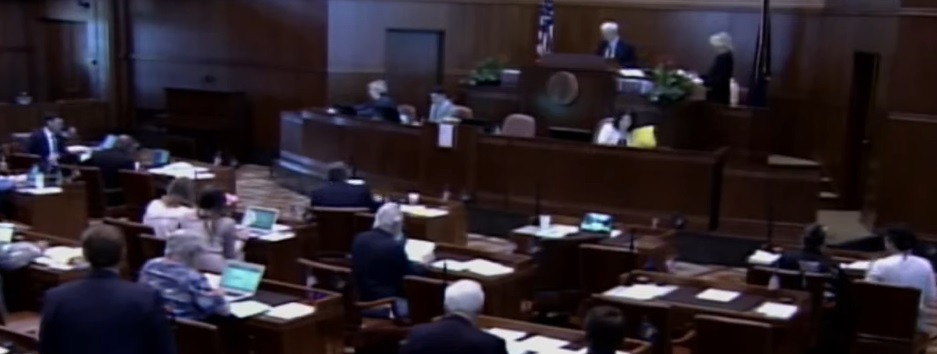 --Staff Reports
--Staff Reports| Post Date: 2020-07-08 12:44:19 | Last Update: 2020-08-08 13:20:05 |
We love libraries. but not to the tune of $10 million
 Editor’s note: This is the second in a multi-part series on the budget for the State of Oregon and where possible efficiencies can be found.
Editor’s note: This is the second in a multi-part series on the budget for the State of Oregon and where possible efficiencies can be found.
Not many people know about the Oregon State Library. One of the strategic goals of the Oregon State Library, as expressed by the agency in it's
budget presentation during the 2019 session, is to "Build awareness of the State Library." Some might say, that if you have a state agency that no one is aware of, maybe it doesn't need to exist -- especially if it is tapping over $10 million dollars from the state general fund.
At first blush, cutting the Orgon State Library might seem to be mean-spirited. Who didn't grow up spending time in the neighborhood library? To make matters worse, the Oregon State Library sponsors the very popular Ready to Read program which funds local libraries' programs to read to younger children. Still worse, it runs the program for persons with "print disabilities" which means Talking Books and Braille services. These facts might be a demagogue's dream, but they fade on closer inspection.
First, the State Library doesn't have much to do with the Ready to Read program. It merely administers the grants, and this could be done by any other agency. The programs for print disabled persons serves fewer and fewer people each year and soon will have fewer than 1,000 persons served. Most younger persons who are print disabled meet their needs through electronic means. Finally, the need for libraries as a place where books are checked out has effectively been replaced by Google. If that makes you sad, very well. If you think $10 million elsewhere in the budget will make you feel better -- or even returned to the taxpayers -- you might find a better case for that.
If you're a millenial you might want to pay a visit to the Oregon State Library. They have a card catalog room. If you don't know what a card catalog is or how to use it, you might want to get over there and check it out (no pun intended). Otherwise you might never see one.
The State Library gets about $6 million directly from the state general fund and about $4 million from assesments on other agencies, which is essentially general fund money.
Savings: $10 million biennially
--Staff Reports| Post Date: 2020-07-08 08:00:00 | Last Update: 2020-07-01 21:21:50 |
Critics are asking for more information.
As
reported on this site yesterday, the Sherwood School District published materials on its website, encouraging staff to "vote for Democrats" and engage in other explicitly political activity. Late yesterday, they removed the link to some of the offending materials. Today, they have
issued an apology, which is reproduced, here.
Statement on Resource Materials
On June 4th, the Sherwood School District released a statement to our students, staff, and families expressing our horror at the tragic death of George Floyd and countless others before him, as well as our commitment to acting as anti-racist leaders. We stand by that statement and our commitment has not wavered.
In that statement, we provided several links for both families and for our staff. Regrettably, we included a resource for staff that we did not thoroughly vet, which made suggestions about how to vote in the upcoming election. We deeply regret the error of including this resource, and removed the link immediately once it was brought to our attention. We apologize for this error.
The Sherwood School District
Some critics have called this kind of activity "deep state" activity and are asking that the school district take action against the person responsible for this illegal activity.
--Staff Reports| Post Date: 2020-07-07 10:38:33 | Last Update: 2020-07-07 10:38:53 |
Looks more like a power grab than actual advice on how to teach.
On June 4, 2020, the Sherwood School District released a
letter to parents, students, staff and community members. It addresses issues of race. The letter is not a big issue, it’s the links inside the digital letter that are a big issue.
Inside the letter are a couple of links called “resourcesâ€. The first is directed to
staff. The second is directed to
students and families.
It’s the first that is a problem. Specifically the link on the “resource†page that is entitled:
“Opportunities for White People in the Fight for Racial Justiceâ€. Don’t let the title fool you. The screenshot below tells you one part of the document that is the part ALL should be very concerned with.
This is the school board and the school superintendent telling the staff to “vote Democrat†and to “contribute to Democratsâ€. That would be very, very forbidden for a school district to do. See graph from the link below:
I’ve been told that things like this are common from the teacher’s union but NOT from the school superintendent nor the school board. Note also that the school board chair is none other than Oregon Health Authority Director Pat Allen, the one who’s been working with the Governor on the coronavirus situation since it first started.

This is a matter that will have to be addressed by the Secretary of State as it appears to be a clear violation of state campaign laws. I urge all who read this to write to the Secretary of State and demand this matter be investigated. If you live in Sherwood School District, you might
contact the School Board members, too.
This school board is not a bunch of backwoods rubes. The director of the Oregon Health Authority and a Lobbyist for Providence Hospitals should both know better than to have such a naked, partisan push published on a taxpayer-funded website.
Further, as people are struggling with the government response to the COVID-19 outbreak, as well as trying to thoughtfully respond to issues of race, it strikes me as very unsportsmanlike for the party in power to use public resources to increase its grip.
Oregon Revised Statute 260.432 on the use of public resources for political purposes is clear:
Solicitation of public employees; activities of public employees during working hours; recognized student government exception. (1) No person shall attempt to, or actually, coerce, command or require a public employee to influence or give money, service or other thing of value to promote or oppose any political committee or to promote or oppose the nomination or election of a candidate, the gathering of signatures on an initiative, referendum or recall petition, the adoption of a measure or the recall of a public office holder.
(2) No public employee shall solicit any money, influence, service or other thing of value or otherwise promote or oppose any political committee or promote or oppose the nomination or election of a candidate, the gathering of signatures on an initiative, referendum or recall petition, the adoption of a measure or the recall of a public office holder while on the job during working hours. However, this section does not restrict the right of a public employee to express personal political views.
Update: The Sherwood School District has replaced the "resource" document referred to in this article with an updated version that does not have the link to
Opportunities for White People in the Fight for Racial Justice.
 --State Representative Bill Post
--State Representative Bill Post| Post Date: 2020-07-06 17:21:37 | Last Update: 2020-07-06 19:22:43 |
Public website links telling people to “vote for Democrats†are certainly illegal
In a shocking and brazen display of raw partisanship, the Sherwood School District
posted a letter on its website that referenced a list of
Resources for Staff Members with links to a document entitled
Opportunities for White People in the Fight for Racial Justice suggesting that educators "Vote for Democrats" and "Donate to campaigns of local progressive politicians...who are trying to unseat incumbent Republicans/conservatives."
The letter was posted Jun 4, 2020, 11:07 AM by Christine Andregg, who is listed in the School District staff directory as working for the district office.
The resource referenced above, contained graphics, including one section with a sub-heading "Electoral Politics" which said,
"Vote for Democrats. Exception could be voting for candidates of color in elections where a White person and a person of Color are running for the same position from the same political party."
"Donate to campaigns of progressive people of Color running for political offices. Donate to campaigns of local progressive politicians in other cities/States who are trying to unseat incumbent Republicans/conservatives."
"Actively fundraise for and campaign on behalf of progressive/radical politicians (especially non-White people), including those running in local elections (school boards, transportation agencies, housing authorities, city councils)."
Another section, entitled "Your Job" encourges Sherwood School District employees to use their job function to tip the scales in favor of minorities, presumably above the current legal requirements to do so.
"Use your job position to help Black, Brown, and Indigenous People. Ex: purposefully seek out Black and Brown people to interview for jobs, and use Black caterers, or Indigenous speakers."

The posting is almost certainly in violation of Oregon Law.
ORS 260.432 makes clear:
(2) No public employee shall solicit any money, influence, service or other thing of value or otherwise promote or oppose any political committee or promote or oppose the nomination or election of a candidate, the gathering of signatures on an initiative, referendum or recall petition, the adoption of a measure or the recall of a public office holder while on the job during working hours. However, this section does not restrict the right of a public employee to express personal political views.
A similar incident was made public by the Northwest Observer in June, when
staff from the Governor's office was reported linking to similar documents.
The letter was signed by all the members of the of the Sherwood School Board, as well as the Superintendent:
Dr. Heather Cordie, Superintendent is a registered Democrat. You can contact her at
hcordie@sherwood.k12.or.us
Patrick Allen, Board Chair is a registered Democrat. Interestingly, he's no stranger to controversy these days as the
Department Head of the Oregon Health Authority. You can contact him in his capacity as Board Chair at
patrickallen@sherwood.k12.or.us
Sue Hekker, Board Vice Chair, is a registered Democrat. You can contact her at
hcordie@sherwood.k12.or.us
Eric Campbell, Board Member is a registered Democrat. You can contact him at
ericcampbell@sherwood.k12.or.us
Jessica Adamson, Board Member is a registered Democrat, who is also a registered lobbyist and Director of Government Relations, Oregon at Providence Health & Services. It is not known what professional relationship she has with the OHA director. You can contact her at
jessicaadamson@sherwood.k12.or.us
Michael Hiland, Board Member is a registered Democrat. You can contact him at
michaelhiland@sherwood.k12.or.us
Update: The Sherwood School District has replaced the "resource" document referred to in this article with an updated version that does not have the link to
Opportunities for White People in the Fight for Racial Justice.
--Staff Reports| Post Date: 2020-07-06 17:05:21 | Last Update: 2020-07-06 19:09:06 |
An in-depth look at the State budget
 Editor’s note: This is the first in a multi-part series on the budget for the State of Oregon and where possible efficiencies can be found.
Editor’s note: This is the first in a multi-part series on the budget for the State of Oregon and where possible efficiencies can be found.
This article is the first in a series of articles on the budget of the State of Oregon, with a specific focus on how it can be cut is such a way that minimizes the impact on taxpayers. Oregon does budgets on a two-year cycle, called a biennium, which means that spending and revenue are projected for two years. If you'd like to, you can
read the entire 546 page budget for the 2019-21 biennium. If you are busy and don't really have the time, you can read the
2019-21 Budget Highlights which is only 207 pages long. Spoiler alert: The final tally is $85.8 Billion.
The primary source for information on the budget is the
Oregon Legislative Fiscal Office, which works for the legislature to craft the budget. Working out of the limelight, they do the work of listening to the various elected officials and weaving their priorities into the budget (actually many budgets) that the legislature votes on.
This series is focused on budget cuts, and some cuts make more sense than others -- not because of where the money is spent -- but because of where the money comes from. For instance, about $22.4 Billion is the General Fund, which, for the most part, comes from income taxes paid by individuals and corportations. Cuts from these funds would make possible tax cuts or other spending possibilities, as decided by the legislature. This is where the real action is. As a side note, even though much of lottery funds are dedicated, lottery funds most always displace spending that would be general fund spending if the lottery funds were not available. Because of that, lottery funds are viewed as similar to general funds.
A slightly larger chunk of the budget is money from the Federal Government. It may be easy to say, “Let’s cut welfare,†but at the end of the day, most welfare -- though administered by the state -- is paid for by the Federal Government. It's surely true that these are still taxpayer dollars and that the money ultimately comes proportionally from Oregonians, or -- because the feds are so deep in debt -- from Oregonian’s grandkids, but cuts to federally funded programs merely create space for the feds to fund another program in another state.
The last kind of revenue is called "Other funds" and it’s not just an "everything that doesn’t fit" category. It has an actual meaning. It’s all the money that the state receives in the form of fees, fines and sales. In a perfect world, the state would have all people who use state services pay for those services, and the state does this as far as it is able and fair. So, if you want to camp in a state park, the state charges you a fee for that to cover the costs of maintenance. Lately, state parks have been booking up earlier and earlier, and if the state of Oregon was a for-profit entity, they would keep increasing the price, as the demand went up. As a state steward of all the resources for all Oregonians, the state has determined that these resources should be available to all Oregonians, not just the rich. That makes some sense, though now they are only available to those who click the fastest.
In other ways, the state tries to get payment from those who use the services. If you drive a car, you use the roads in the state and you’ll probably eventually buy gas, which is taxed and constitutionally dedicated to roads. If you walk, you don't pay that tax. The same is true if you buy a fishing license, rent public housing, or many other ways to use state services that are not availble to all.
Unfortunately, it’s not always possible to charge people for the services they are provided. Some of the Oregon Health Plan, for instance, is funded by the state general fund. We can’t charge poor people a health care premium that they are unable to afford. And good luck trying to get inmates in the Oregon State Correctional Institutions to pay for their room and board, though they are involved in some economic activities that bring money into the state. You guessed it. This money is called "other funds."
In the coming days, this series will explore in detail possible cuts to Oregon's budget. This is a questions that will arise during upcoming sessions and long into the future. This is a conversation that is sometimes obscure, sometimes controversial, and sometimes in the tall weeds, but is always necessary.
--Staff Reports| Post Date: 2020-07-06 08:00:00 | Last Update: 2020-07-06 08:28:05 |
We have much to celebrate and yet much work still to do
2020 has turned out differently than most of us envisioned. In January if I had written an email with the terms “Coronavirus†or “Social Distancingâ€, I suspect you would’ve tilted your head as you thought about such a strange world. Now several months in and after a second extension of the Governor’s state of emergency, we find ourselves wondering how to celebrate our nation’s birthday.
July 4, 1776 is the birthday of our great nation. However, a new narrative has recently emerged that challenges the founding principles of why the pilgrims came to America. They came in pursuit of religious freedom and over time we became one nation under God and with liberty and justice for all. The 1619 Project, promoted by many progressive liberals and the New York Times, provides Americans with an alternative beginning, redefining the motivation for our nation’s founding based on slavery.
On our nation’s 244th birthday we find ourselves at a consequential cross road — will we choose freedom or will we choose something else? That said, this is not the first time that we have faced such difficult challenges. In the Cold War we fought and defeated communism. In World War II we fought and defeated fascism. In the Civil War we fought and defeated slavery. Today we face communism, fascism and false ideas about our nation’s history concerning slavery — all at the same time. Solomon was certainly right when he said, “There is nothing new under the sun.â€
Liberty has always been the enemy of tyranny. While our natural state yearns to be free, the natural state of government desires to enslave those it governs. It is a constant battle and one that never ends. “The price for liberty is eternal vigilance†rings true. Indeed, freedom is not free. There is always a price to be paid. Freedom requires patriots to stand in the gap, to stand and fight Liberty’s enemies in order to preserve the rights documented by our Founding Fathers in the Declaration of Independence.
This Independence Day I ask you to take a few moments to be thankful for the freedoms we all enjoy today. While not perfect, America still is a bright beacon of the world and the most free nation that has ever existed. I also ask you to take a few moments to decide what you will do during the next several months to preserve these freedoms for the generations to come. Edmund Burke once wrote, “Evil prevails when good men do nothing.†Let history show we were not the generation that did nothing, but rather the ones who pulled together and gave Liberty the wind in her sails for the next 244 years.
God bless you. God Bless Oregon. And may God Bless the United States of America. Let Freedom Ring!

E. WERNER RESCHKE
State Representative
Southern Klamath & Lake Counties
Capitol Phone: 503-986-1456
Capitol Address: 900 Court St. NE, H-384, Salem, Oregon 97301
Email:
Rep.EWernerReschke@OregonLegislature.gov
Website:
www.oregonlegislature.gov/reschke
Facebook:
Facebook.com/wernerfororegon--State Representative E. Werner Reschke| Post Date: 2020-07-03 17:00:00 | |
It appears to fall short of the required number.
Today, the
People Not Politicians campaign, the broad and diverse coalition that has come together to end gerrymandering in Oregon, submitted tens of thousands of signatures to the Oregon Secretary of State for Initiative Petition 57 (“IP57â€), just days after filing a lawsuit in Federal Court to ensure that all of the signatures gathered to qualify its redistricting reform initiative for the November 2020 ballot would count.
“People Not Politicians is committed to ensuring that redistricting reform happens before Oregon draws new maps in 2021. We forged ahead through unprecedented times with an unprecedented signature gathering program, bringing in tens of thousands of petitions from Oregonians in barely over one month,†said Norman Turrill, Chief Petitioner and Chair of the People Not Politicians campaign committee.
“We filed our lawsuit on Tuesday asking the Court to recognize the extreme and unprecedented circumstances of a global pandemic that impacted the signature gathering process in Oregon, and to protect our First Amendment rights by reducing the barriers to the ballot,†Turrill continued.
Initiative Petition 57, filed in November 2019, would create the Oregon Citizens Redistricting Commission and put redistricting in the hands of Oregonians, not our politicians. The commission would consist of 12 Oregonians who applied and were selected from qualified applicants – four from the first largest political party, four from the second largest political party, and four others who are third party members or non-affiliated. Major donors to political candidates or parties would not be eligible. Neither would elected-officials, political party officials or their family members. Commissioners would be selected to represent the broad diversity of Oregonians.
After succeeding through multiple politically-motivated legal challenges and delays, the campaign was approved to collect signatures in April, weeks after Oregon Governor Kate Brown issued several emergency orders and the Stay Home, Save Lives program, which, effectively ended all possibility of traditional in-person signature gathering efforts.
After weeks of brainstorming and preparation, at the end of May, the People Not Politicians campaign launched a novel, creative and aggressive no-contact signature gathering campaign to collect signatures through direct mail, e-petitions and virtual grassroots communications efforts to qualify for the November ballot.
“Our first priority, of course, has been to ensure the safety and health of all Oregonians during this time and we adhered to the social distancing measures under Governor Brown’s Executive Orders with an abundance of caution,†said Candalynn Johnson, Deputy Campaign Manager for People Not Politicians. “But—democracy doesn’t stop. Redistricting will happen in 2021, and Oregonians deserve a redistricting process that is about the people, not politicians. During this time of unrest, our need to protect and advance the democratic process and ensure all Oregonians are represented is more important than ever.â€
The initiative campaign coalition came together in April of 2019 and has been led by the League of Women Voters of Oregon, Oregon Farm Bureau, Common Cause Oregon, the Independent Party of Oregon, NAACP Eugene/Springfield Branch, Taxpayer Association of Oregon, OSPIRG, Oregon’s Progressive Party, and tens of thousands of Oregonians who supported the effort to remove conflicts of interest from drawing of voter lines.
Based on the filing of the lawsuit, it appears that the coalition does not have enough signatures to qualify for the November ballot. 149,360 verified signatures of Oregon registered voters are needed. Norman Turrill, spokesperson for the campaign, did not return calls.
--Staff Reports| Post Date: 2020-07-02 18:53:50 | Last Update: 2020-07-02 18:56:51 |
It’s all fun and games until someone is held accountable
--Northwest Observer Meme Team| Post Date: 2020-07-02 12:19:08 | Last Update: 2020-07-02 12:19:20 |
She just extended state shutdown and many still need help
Oregon House District 53 Representative Jack Zika (R-Redmond) today criticized the recently passed cell phone tax to fund broadband internet and other untimely taxes that have been passed quickly during last week’s special legislative session. He stated the many struggles that some are still having with the Employment division and how creating new taxes at this time when Oregonians are hoping to begin a financial recovery after extensive closures and shutdowns might be a bad idea. Zika suggests that Governor Brown veto the bill which is headed to her desk.
The full text of the letter is reproduced here:
Dear Governor Brown,
At the conclusion of the 2020 First Special Session, another bill passed through the legislature that would add an additional tax on already burdened Oregonians. This bill, Senate Bill 1603, is headed to your desk for approval. After yesterday's announcement that you are extending the emergency order, and the fact that many Oregonians have yet to receive their first unemployment
check, I urge you to veto any tax bill, including the cellphone tax, that crosses your desk in order to allow Oregonians time to recover from the financial burden created by closures and layoffs.
Creating new taxes right now for broadband seems counterproductive when the state recently allocated $20 million in federal funds to improve rural broadband and has no plans on how to spend it. I suggest we come up with solutions to allocate that money before we even start the conversation on adding additional taxes.
As we've learned from the Oregon Employment Department's failure to use federal funds for years to improve its unemployment claims processing capacity, our state government does not suffer from a lack of resources; rather, it suffers from a lack of competence in using the resources it has responsibly.
The new cell phone tax comes on the heels of the implementation of Oregon's Corporate Activity Tax, which will drain desperately needed liquidity from small businesses and will lead to more layoffs. The one-two punch of tax hikes this summer and fall comes at the worst time, and small businesses around Oregon are closing after 20-30 years serving their communities due to restrictions and crushing tax burdens.
This tax might seem insignificant to some, but to others it means death by a thousand paper cuts (or taxes), and this will lead to many more mom-and-pop stores closing their doors. Some of these stores serve our impoverished or rural communities and are the only ones providing essentials for daily life within their neighborhoods. The power lies in your hands to show Oregonians that you are invested in their recovery, so I urge you to veto SB1603 and any other tax bill that come across your desk during your State of emergency declaration.
--Ben Fisher| Post Date: 2020-07-01 21:44:21 | Last Update: 2020-07-01 21:45:16 |
Seen as a victory for both religious freedom and school choice
In an opinion delivered by Chief Justice John Roberts, the US Supreme Court has struck down so-called Blaine Amendments present in many state laws and constitutions, including the Oregon Constitution. The obsolete language is the entirety of Article 1, Section 5, which reads “No money shall be drawn from the Treasury for the benefit of any religeous [sic], or theological institution, nor shall any money be appropriated for the payment of any religeous [sic] services in either house of the Legislative Assembly.â€
The decision, arising from the case of
Espinoza et al. v. Montana Department of Revenue et al, allows states to create a voucher system of payment for k-12 education in which state funds can be used at private institutions of education, including those operated by religious bodies.
Blaine Amendments have a dark history based in bigotry, discrimination and religious intolerance. As states were admitted to the union in the 19th century, Maine US Senator, James G. Blaine -- an anti-Catholic bigot -- made sure that their admittance to the union was dependent on their adoption of a law or section in their constitution that forbid state money from being disbursed to religious entities. At the time, almost all of non-public education was run by the Catholic Church. Public education was very protestant at the time, and these laws solidified their monopoly.
Though created to give protestants an advantage over Catholics, today, Blaine Amendment type laws serve a different monopoly -- that of the public teachers’ unions -- and prevents any legislation which allows the money to "follow the student" to be rendered ineffective.
Chief Justice Roberts summarizes the case in the first paragraph of the decision.
The Montana Legislature established a program to provide tuition assistance to parents who send their children to private schools. The program grants a tax credit to anyone who donates to certain organizations that in turn award scholarships to selected students attending such schools. When petitioners sought to use the scholarships at a religious school, the Montana Supreme Court struck down
the program.
All states but 10 have some version of a Blaine Amendment or legislation that was struck down by this decision. Unaffected states include Arkansas, Connecticut, Maine, Maryland, New Jersey, North Carolina, Rhode Island, Tennessee, Vermont, and West Virginia.
In concluding his decision, Justice Roberts identifies this as a religious liberty issue.
[T]his Court has repeatedly upheld government programs that spend taxpayer funds on equal aid to religious observers and organizations, particularly when the link between government and religion is attenuated by private choices. A school, concerned
about government involvement with its religious activities, might reasonably decide for itself not to participate in a government program. But we doubt that the school’s liberty is enhanced by eliminating any option to participate in the first place.
Look for a blossoming of state voucher programs in states that have legislatures friendly to this type of aid. Voucher programs are seen as particularly liberating to communities which are struggling economically, as they allow everyone to send their children to private schools, not just the wealthy.
--Staff Reports| Post Date: 2020-06-30 21:01:43 | Last Update: 2020-07-01 12:29:47 |
Read More Articles






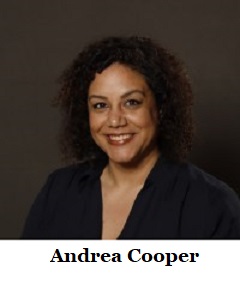
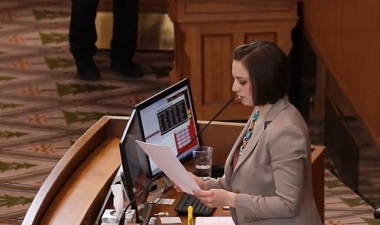

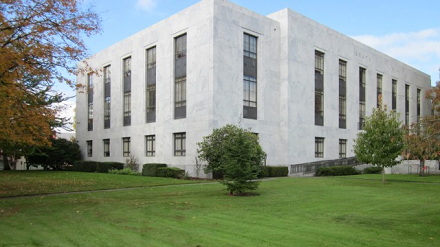
 Editor’s note: This is the second in a multi-part series on the budget for the State of Oregon and where possible efficiencies can be found.
Editor’s note: This is the second in a multi-part series on the budget for the State of Oregon and where possible efficiencies can be found.

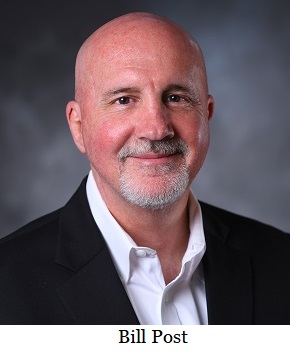
 This is a matter that will have to be addressed by the Secretary of State as it appears to be a clear violation of state campaign laws. I urge all who read this to write to the Secretary of State and demand this matter be investigated. If you live in Sherwood School District, you might contact the School Board members, too.
This is a matter that will have to be addressed by the Secretary of State as it appears to be a clear violation of state campaign laws. I urge all who read this to write to the Secretary of State and demand this matter be investigated. If you live in Sherwood School District, you might contact the School Board members, too.




 Editor’s note: This is the first in a multi-part series on the budget for the State of Oregon and where possible efficiencies can be found.
Editor’s note: This is the first in a multi-part series on the budget for the State of Oregon and where possible efficiencies can be found.


